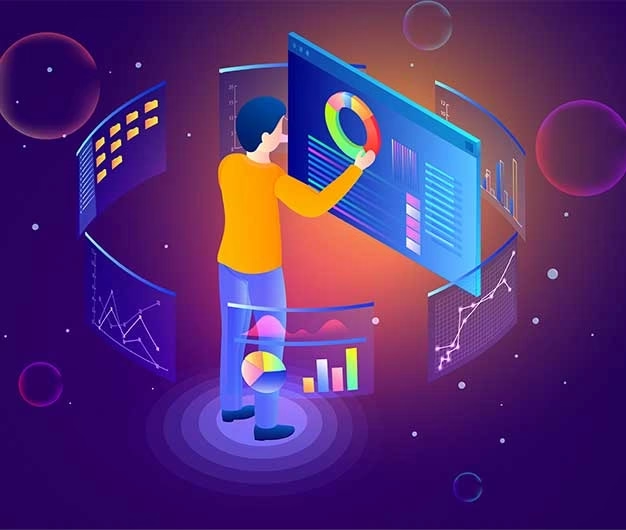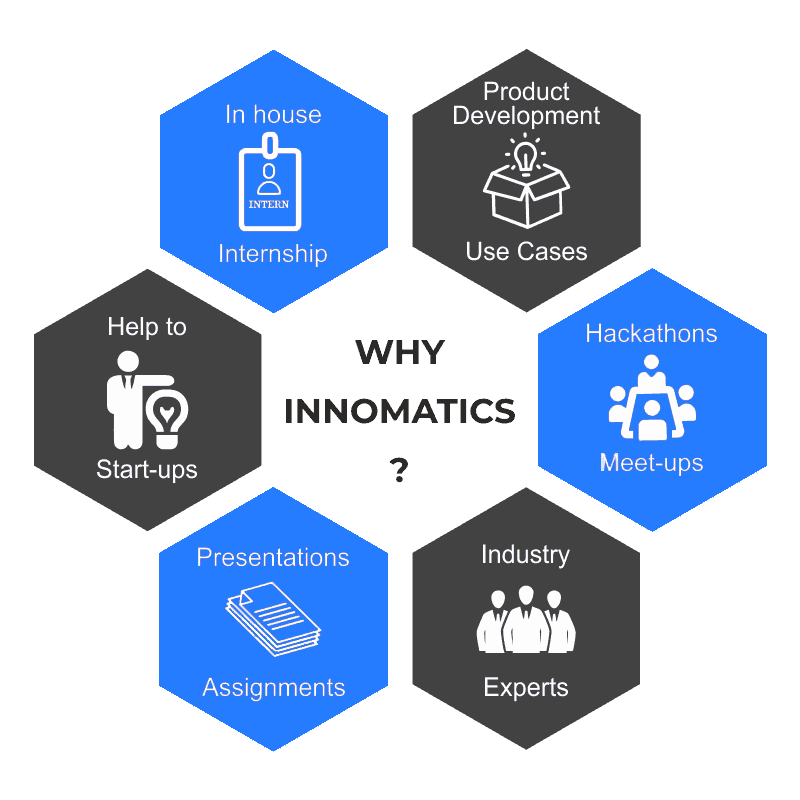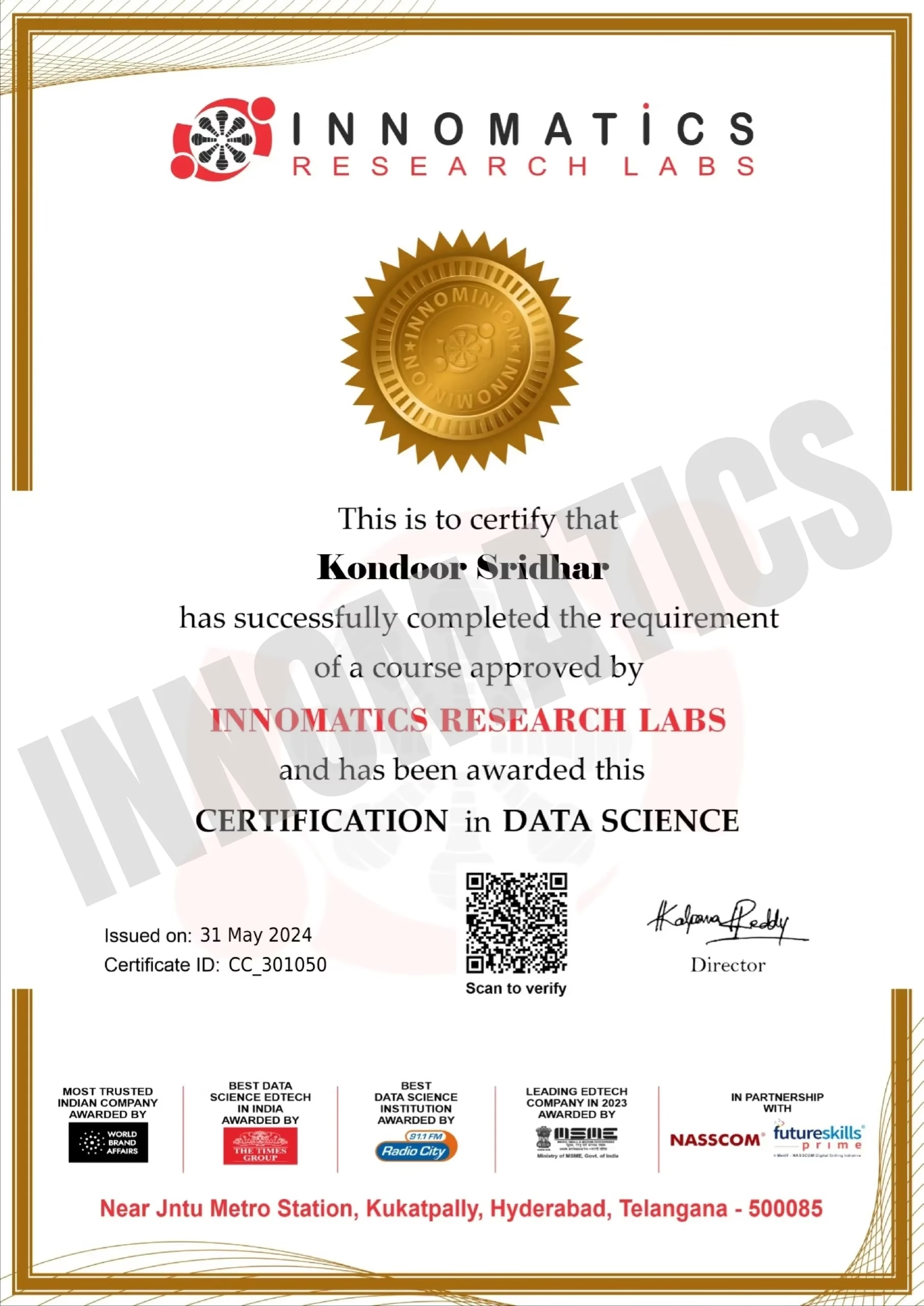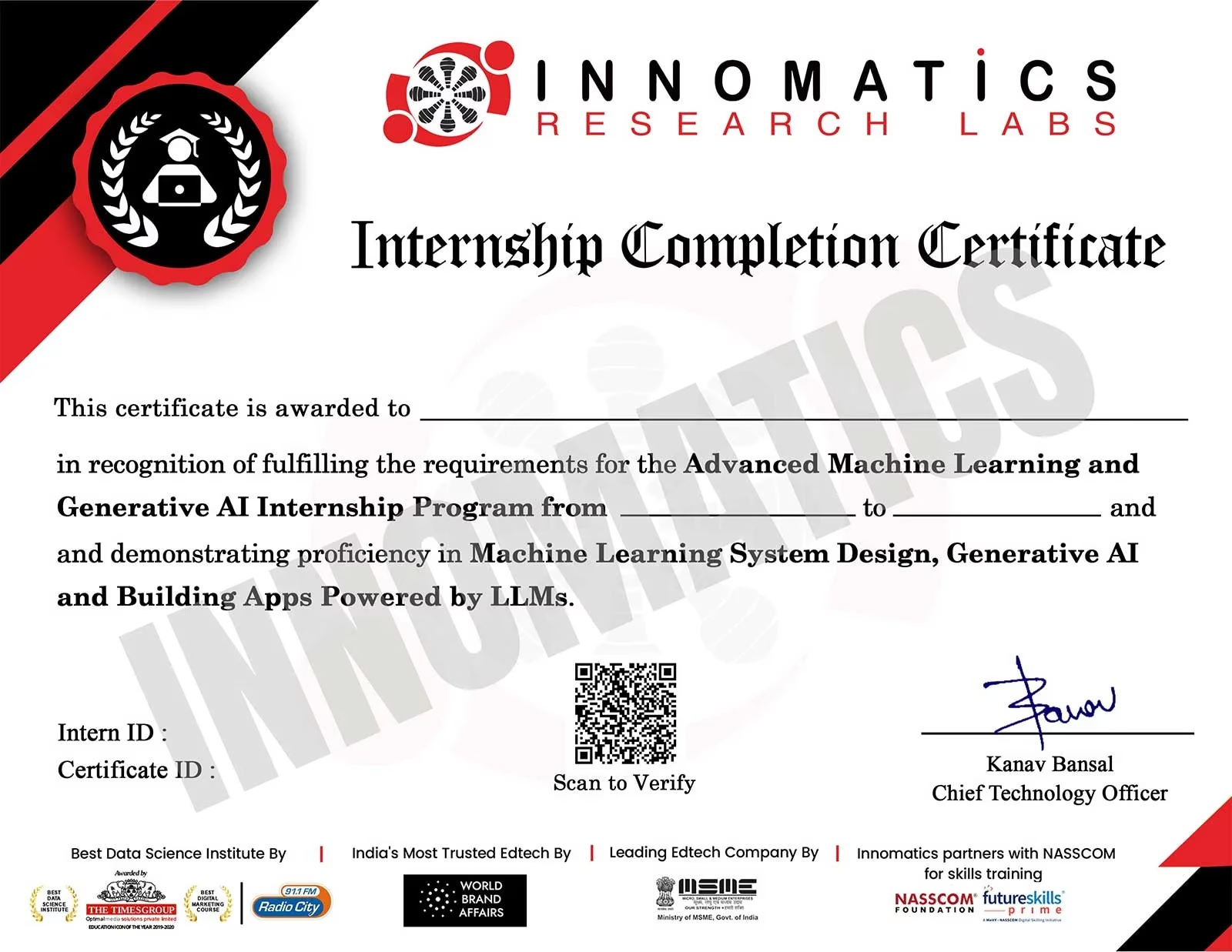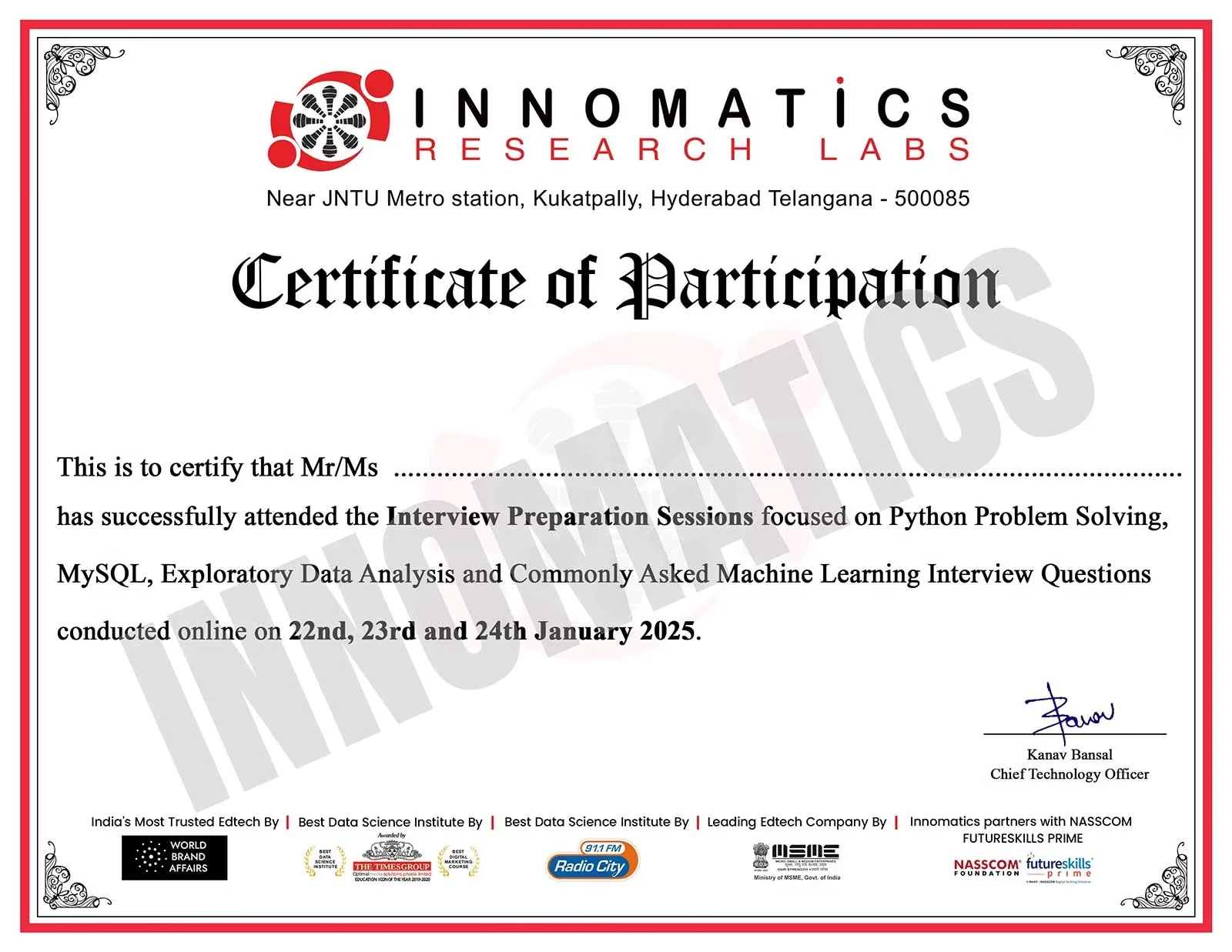Empowering Tech Careers Through Data Science & AI
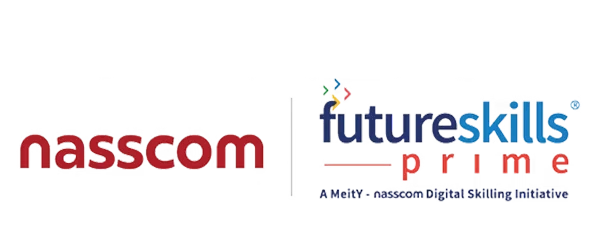
NASSCOM-Certified Data Science Program with Python, Internship & Placement Assistance
This advanced NASSCOM FutureSkills Prime Certified Data Science course in Hyderabad guarantees career transformation. Here’s a one-time opportunity to learn with the best Data Science training in Hyderabad. Gain knowledge of data analytics, tools, and operations for data science certification and meet the massive demand for these skills.
Here you will learn to read, analyze, clean, engineer, and present data in a way that promotes the growth of your business. To drive data and extract significant results, this Data Science course can help you progress in leaps and bounds. This NASSCOM FutureSkills Prime Certified Data Science training will accelerate your career as it covers relevant topics & pushes you to work on real-time scenarios.
Artificial Intelligence and Machine Learningin Data Science technology are constantly revolutionizing the industry by innovating and solving complex business problems.
Our principle of holistic development lies in the strong bedrock that believes in the amalgamation of theoretical knowledge along with practical training.
PREREQUISITE: The candidate must be pursuing a Bachelor’s Degree. Previous coding experience is an added benefit.
Our Hiring Partners
Tools & Platforms

Curriculum Highlights
Module 1: Python Core & Advanced
INTRODUCTION
- Variables, Data Types, and Strings
- Lists, Sets, Tuples, and Dictionaries
Control Flow and Conditional Statement, Functions, Modules and File Handling Class and Objects
Module 2: Data Analysis using Python
Numpy – NUMERICAL PYTHO
Data Manipulation with Pandas
DATA VISUALIZATION
Data Visualization using Matplotlib and Pandas
Exploratory Data Analysis
UNSTRUCTURED DATA PROCESSING
Regular Expressions
Project On Web Scraping: Data Collection And Exploratory Data Analysis
Module 3: Advanced Statistics
Introduction to Statistics and Data Types
Descriptive Statistics
Probability Distribution
Inferential Statistics
Module 4. Data Base (SQL) + Reporting Tool (Power BI)
Introduction to SQL
Data Exploration and Data Filtering (DQL and OPERATORS)
SQL Fundamentals
SQL Database Objects
Advanced Topics
Introduction To Power BI
Data Import And Data Visualizations
Power Queries
Power Pivot And Introduction To Dax
Data Analysis Expressions
Login, Publish To Web And RLS
Miscellaneous Topics
Module 5: Machine Learning - Supervised & Un-Supervised Learning
Introduction
Validation Methods
Supervised Learning
Probability-Based Approach – Naive BayesPolynomial Regression
Introduction And Linear Algebra
Distance Based Approach – K Nearest Neighbors
Rule / Decession Boundary Based Approach – Decision Trees
Boundary-Based Linear Model – Linear Regression
Multiple Linear Regression
Evaluation Metrics for Regression Techniques
Polynomial Regression
Regularization Techniques
Logistic regression
Support Vector Machines
Ensemble Methods in Tree Based Models
Random Forest
Boosting: Adaboost, Gradient Boosting, XG Boosting:
Machine Learning Applications for Data Analysis
Un Supervised Learning
Dimensionality Reduction Techniques – PCA & t-SNE
K-Means Clustering
Hierarchical Clustering
Module 6: Deep Learning
Introduction to Deep Learning Principal Components Analysis
Neural Network Architecture and Activation Functions
Forward and Backward Propagation Optimizers
Neural Network Architecture and Activation Functions
Keras Hands-on – Regression and Classification
Module 7: CNN & Computer Vision
Intro to Images and Image Preprocessing with OpenCV CNN Architecture
Image Classification Case Study
Transfer Learning
Case Study with Transfer Learning
Object Detection
YOLO – Case Study
Module 8: Natural Language Processing
Introduction to text and Text Preprocessing with nltk and spacy
Vectorization Techniques
Project – Text Classification
RNNs
Project – Sequence Tagging
LSTMs
Auto Encoders
Transformer and Attention
BERT
Module 9: Gen AI
Intro To Gen AI
Intro To LLM
Prompt Engineering and Working with LLM
Open AI
Gemini
LLaMA
LangChain
Eligibility Criteria
✅Education: Bachelor’s degree in any field.
✅ Helpful Skills: Basic knowledge of programming and statistics is a plus (not required).
✅ Who Can Join? Beginners, analysts, or working professionals looking to transition into data science.
Tools & Platforms
Why Choose Data Science at Innomatics?
500+ Industry experts from Fortune 500 companies
Dedicated In-house data scientist team accessible round the clock
200+ Hours of intensive practical-oriented training
Flexible Online and Classroom training sessions
5+ Parallel Data science batches running currently on both weekdays & weekends
Backup Classes and Access to the Learning Management System (LMS)
One-to-one mentorship and Free Technical Support
Projects and use cases derived from businesses
Domain-focused teach-back sessions and reverse presentations
Free tech assistance and personalized career guidance
30+ POCs and use cases to work, learn, and experiment
Biweekly industry connections from industry experts from various sectors
Opportunity to participate in Meet-ups, Hackathons, and Conferences
Dedicated training programs for NON-IT professionals
100% Placement Assistance
Globally Recognized Certification from NASSCOM FutureSkills Prime
Program highlights
Innomatics Placement Achievers














Meet the Success Stories of Our Innomatics
Career transition support that helps you get hired

Mock Interviews & Resume Makeover
Participate in expert-led mock interviews and receive professional resume enhancement aligned with current industry standards.

Project Portfolio Enhancement
Strengthen your portfolio with real-world, industry-focused projects that effectively showcase your data science expertise.

Access to Exclusive Job Portal & Placement Drives
Get priority access to Innomatics’ hiring network, job portal, and regular placement drives with top companies.
This program is right for
Career Opportunities after the Data Science Course
$28.36 billion
growth of the AI market by 2030
20 million
new AI-related roles by 2026
₹500 billion
GDP growth of India by 2026
Data Scientist
AI Engineer
NLP Engineer
AI Consultant
Data Engineer
Data Analyst
GenAI Engineer
Business Analyst
ML Engineer
Big Data Engineer
Career Opportunities after the Data Science Course
Data Scientist
AI Engineer
NLP Engineer
AI Consultant
Data Engineer
Data Analyst
GenAI Engineer
Business Analyst
ML Engineer
Big Data Engineer
$28.36 billion
growth of the AI market by 2030
20 million
new AI-related roles by 2026
₹500 billion
GDP growth of India by 2026


